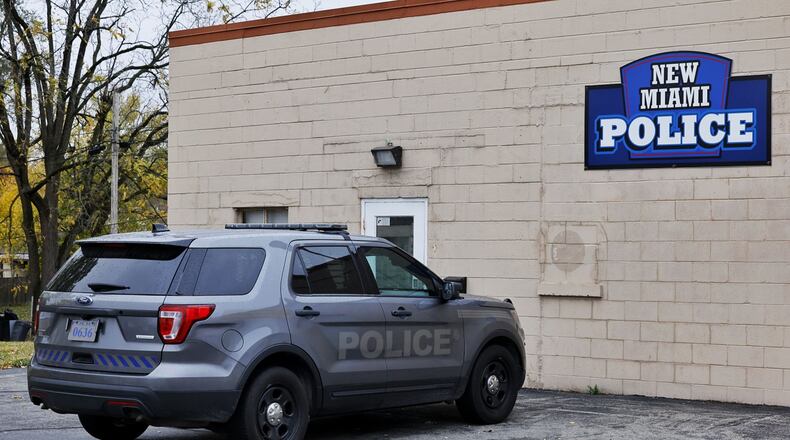The village is also asking voters to renew the 2-mill fire levy for another five years, a measure that doesn’t raise taxes. The fire levy collects about $34,000 annually and costs the owner of a $100,000 home approximately $55 per year.
Police Chief Chip Webb told the Journal-News expenses for next year are projected at $199,000 and they have been tapping the general fund to make ends meet, so if it passes “we won’t need to draw the stipend from the general fund which will open that money up for other departments in the village.”
He said he and his captain are the only paid officers on the force and he has three auxiliary officers. Webb works part-time and his captain works 40 hours a week. He said they try to have someone patrolling the village five days a week, with the passage of the levy he said they could come close to 24/7 coverage.
“At least with the levy we could schedule people where we could have an officer out each day of the week, seven days a week,” he said adding if he could pay the auxiliary officers it would make scheduling easier. “it would still be a minute amount to pay them for what the job is, but nobody becomes a police officer to get rich. But it’s still nice to be paid for something you’re good at and you love.”
Part of the reason for the levy request is the new dispatch fee the village is required to pay Butler County Sheriff Richard Jones, according to village Solicitor Dennis Adams. The dispatch fee debate has been going on for years, the sheriff is charging communities who run their own police departments fees for using his dispatch center. Hamilton and Oxford have been paying the sheriff for years but this was the first year the other jurisdictions had to pony up. New Miami’s annual bill is $47,524, based on dispatch usage in 2020.
“At this point in time our dispatch fees are north of $40,000 a year, so I think that’s the main reason we’re looking at the levy we’re looking at, to try to supplement that...,” Adams said. “We need the levy to pass because we have this bill that we have to pay the sheriff’s department every month that wasn’t something we foresaw having to do.”
He said if the levy doesn’t pass the mayor and village council will have some tough decisions to make, “obviously if the levy doesn’t pass there’d be a question as to what capacity it (the department) would still exist” but he said they haven’t discussed it with him yet.
Village finances weren’t an issue for several years while they were running the lucrative speed camera program. The village had been entangled in two lawsuits over the speed catchers until earlier this year.
The Ohio Supreme Court handed the village a win in April when it ended the eight-year, $3.4 million battle over the old camera program. The speeders claimed the Automated Speed Enforcement Program (ASEP) violated their due process rights because an administrative hearing based on what the camera eye had seen was used, rather than court proceedings where they could question witnesses.
The cameras stopped rolling in 2014 after a judge found the stationary, unmanned devises unconstitutional, the program was re-booted in 2016 with hand-held devises until the new law took effect July 2019. The law reduced the amount of state financial aid local jurisdictions receive by the amount they collect annually in speed camera ticket revenue. It also mandated the courts handle speed camera citations as civil proceedings that include court fees and costs.
The village sued the state over the new law but lost that fight when the high court found — in cases filed by other jurisdictions — the legislature was within its rights to impose the penalties for operating the money-making machines. During that lawsuit village officials said they could be forced to dissolve their police department if they lost the camera revenues.
Adams said the village could “in theory” reinstate the cameras “as long as it generated enough revenue to offset the local government matching funds.”
The village collected $1.76 million under the rebooted program but only received $31,973 in local government funds from the state last year, according to Fiscal Officer Belinda Ricketts.
Webb told the Journal-News he would not want to reinstate the cameras as a revenue generator.
“I’m not big proponent either way I feel technology should be able to benefit law enforcement just like it does every other career field, but I’m not naive enough to (not) know it was utilized as a revenue source as opposed to more safety driven the first time,” Webb said. “So if it is something that comes back up to discuss I would discuss it with the solicitor and council and streamline it more toward safety and traffic enforcement.”
CONTINUING COVERAGE
Read about the levies that will be on ballots throughout Butler and Warren counties.
journal-news.com/elections
About the Author

